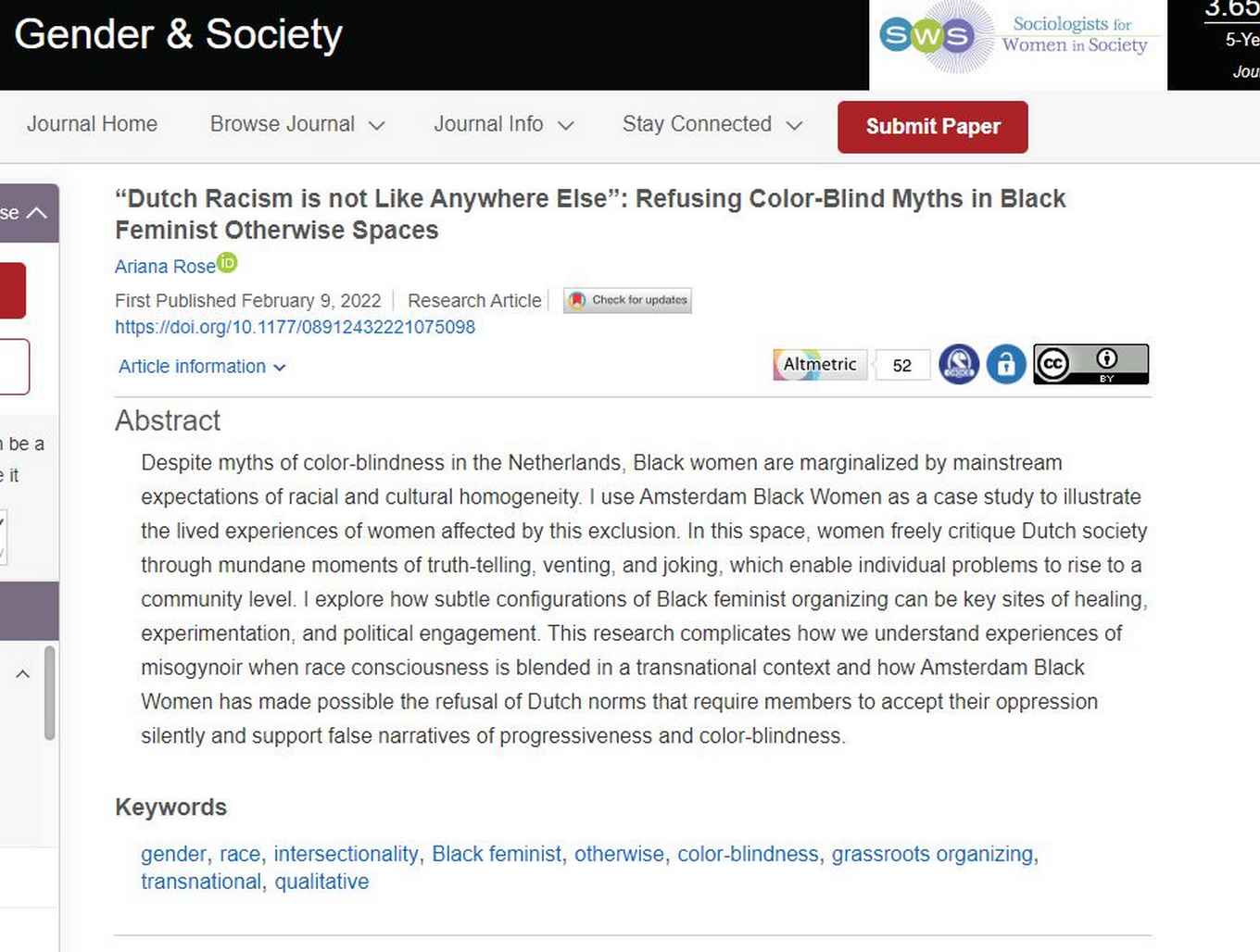New article published: “Dutch Racism is not like anywhere else”
3 March 2022

The abstract
Despite myths of color-blindness in the Netherlands, Black women are marginalized by mainstream expectations of racial and cultural homogeneity. I use Amsterdam Black Women as a case study to illustrate the lived experiences of women affected by this exclusion. In this space, women freely critique Dutch society through mundane moments of truth-telling, venting, and joking, which enable individual problems to rise to a community level. I explore how subtle configurations of Black feminist organizing can be key sites of healing, experimentation, and political engagement. This research complicates how we understand experiences of misogynoir when race consciousness is blended in a transnational context and how Amsterdam Black Women has made possible the refusal of Dutch norms that require members to accept their oppression silently and support false narratives of progressiveness and color-blindness.
Reflections from the author Ariana Rose on the process through which the article came about
As a Jamaican-American woman living in Amsterdam, I was confronted by the racism I experienced (in terms of severity and frequency), and went through a challenging personal process of unpacking this. This was confusing given how often I was told how tolerant and color-blind the Netherlands was.
When I spoke about the misalignment of this “progressiveness” and my experiences, I was mostly antagonized, but I also got the opportunity to connect with others who had had similar experiences. I wanted to know how others were navigating white Dutch spaces that inflicted trauma then told us to keep quiet. What toll was this taking?
By having honest and vulnerable conversations, I realized there was a story to be told, one about the experiences of Black women unfamiliar with the Netherlands trying to make sense of the incompatibilities between what we were told was reality and our lived experience. This is how I became interested in what a refusal of these harmful narratives might look like. Was it possible to opt out of color-blind myths? And what were the elements of a space that felt safe, healthy, and validating?
To find out, I did participatory research with a group called Amsterdam Black Women. I analyzed posts on the group’s Facebook page, went to gatherings, and spoke with its members and founders. My goal was to describe the mechanisms that motivated women to join and to articulate the processes underlying the creative solutions they came up with in the search for understanding and belonging when denied it elsewhere. This article reflects on the impact and importance of this work while recognizing its subtle and experimental nature.